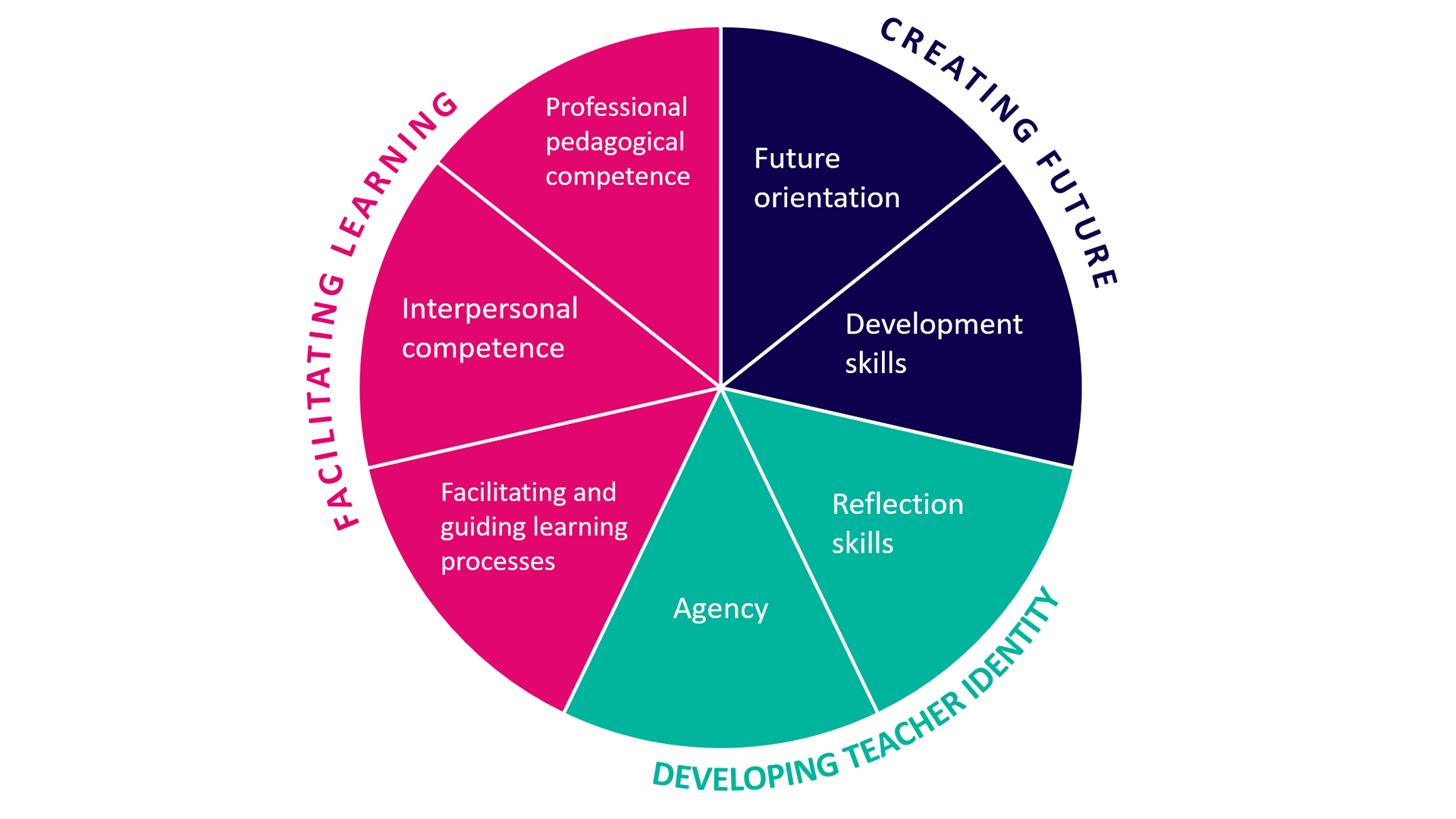Professional Teacher Education Student
Teacher competences
Professional Teacher Education 2024 - 2025, 2023 - 2024
The International Professional Teacher Education Studies for the Digital Era equips you with knowledge, skills and competences needed from the educational professionals in 21st century world. You will learn how to facilitate learning processes for diverse learners while developing your own expertise as well as your working community – all this with a proactive outlook to the future.
Digitalization, globalization, and changes in the landscape of work all around the world set new requirements for not only teachers but also other professionals in the world of work. They are also crosscutting issues across this study programme, and you will learn how to turn these phenomena into an asset in your work as an expert of learning.
In Finland, professional teacher education studies are regulated by the Finnish statue (Statute 1129/2014 § 6). The studies provide the graduates with the pedagogical qualification required of teachers at universities of applied sciences, vocational and professional education and training (VET), as well as, other educational levels.
Our curriculum is competence-based including three key competence areas: facilitating learning, creating the future and developing teacher identity. Each of them are further divided into more specific skills and competences as below. The skills within each competence area will be developed, deepened and assessed through different learning assignments.

Professional pedagogical competence consists of a teacher's
- theoretical, ethical and philosophical understanding of vocational competence and learning
- ability to support the development of professional knowledge and skills and learners’ self-regulation skills as required in their professional field and defined in the formal documents and regulations
- ability to act in a critical, formative and creative manner in the pedagogical operating environments of their field.
Interpersonal competence includes a teacher's
- ability to deliberate learners’ personal learning aims and premises and support learner agency
- competence in supporting learners in a sensitive manner considering their life and learning contexts
- dialogical and ethically sound approach supporting the well-being of learners.
Facilitating and guiding learning processes involves a teacher's
- collaborative approach and ability to planning, implementing, assessing and developing learning and guidance processes taking into consideration the diversity of learners
- understanding of group processes and group phenomena in learning
- employment of versatile and working life-oriented learning resources
- ability to design, implement and facilitate learning processes in digital environments in a pedagogically meaningful way
Creating the Future
Future orientation refers to a teacher’s
- willingness and ability to contribute to the future of learning, work and society
- ability to perceive societal, economic and social developments and to identify changes that take place in professional competences in their own field
- inquiry-based approach to work and a critical but constructive attitude towards the existing operational methods and structures
- courage to think creatively and change their ways of working in a new way to promote social equality, education and ethically sustainable development.
Development skills refer to a teacher's
- ability to further develop their own and their organisation’s practices and operational culture in collaboration with others
- willingness and ability to develop vocational learning, work and entrepreneurship at regional, national and international level
- ability to acquire and justify information on the development needs of vocational learning and the world of work, in order to use it to promote learning
- forming of relevant partnerships networks in an innovative and solution-oriented manner.
Developing a Teacher Identity
Reflection skills refer to a teacher's
- ability to recognise and critically assess their own values, attitudes, ethical principles and work methods
- ability to adjust their actions based on the feedback received
- ability to assess in realistic way their own learning and competence and setting new goals as a facilitator of learning.
Agency refers to a teachers’
- proactive approach to creating their own professional development path
- ability to set goals for their professional development;
- making creative, work-related decisions on the basis of professional pedagogical knowledge
- capacity to manage their own work in an appropriate manner
- participating in joint knowledge creation processes, and possessing the competence to work in diverse learning environments to further develop their own and the work community’s activities.
